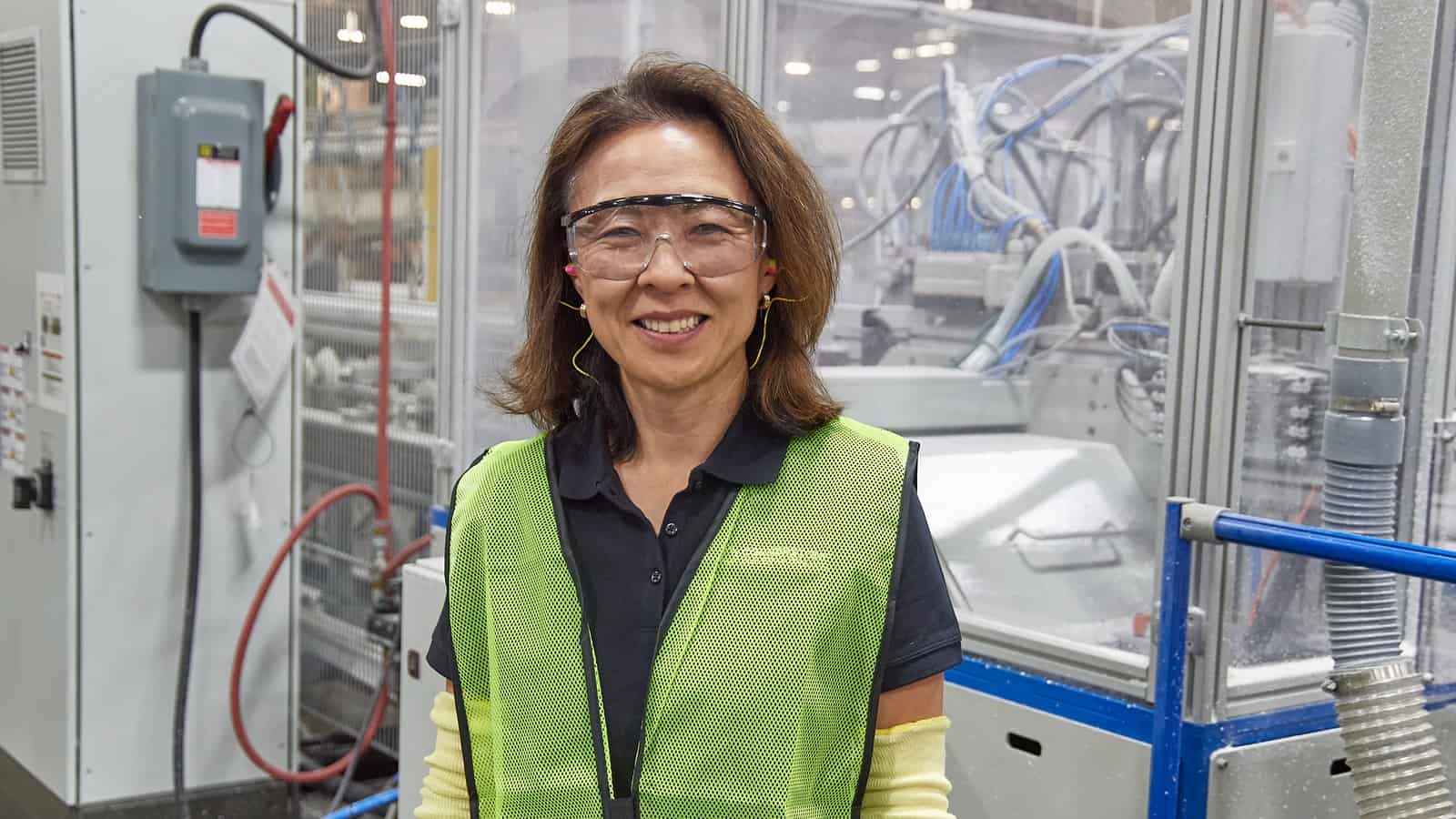Cornerstone Building Brands’ Rose Lee on Leadership in Manufacturing

“It is up to us to shape our future,” Rose Lee advises women in manufacturing.
Women should “take the opportunity to lead and do it in your own way with the outcomes you know you’ll be able to produce so others will see you as an example of diversity,” continued the President and CEO of North Carolina–based Cornerstone Building Brands and member of the NAM Executive Committee. “There is not just one way of doing it, even in the manufacturing environment.”
This year, Lee is serving as chair of the Manufacturing Institute’s Women MAKE Awards, which will honor more than 100 outstanding women working in the industry. We spoke to Lee ahead of the awards ceremony, and here’s what she had to say.
Finding your passion: Lee describes herself as someone who derives a lot of satisfaction from the work she does—and wants to ensure others can do the same.
- “In our company, we are part of creating things that are part of the most important things in your life: your home, your shelter,” said Lee, who holds degrees in aeronautical and mechanical engineering as well as an M.B.A. “I find that very meaningful.”
- But her focus extends beyond the tangible, too. “There’s the content of what is done, but then there’s the opportunity that can be created for others … [which] increases the probability that they can find passion and enjoyment … like I had the opportunity to do.”
Increasing diversity: When it comes to diversifying the job pipeline in manufacturing, candidates themselves can often play a bigger role in their own success than they may realize, Lee said.
- “It starts with awareness that there are these opportunities. Then, [candidates should seek] the training, exposure and knowledge that are critical for these roles.”
- Meanwhile, “those of us who have the opportunity [must] make our voices louder,” she added. “Reach out to help people understand more clearly what is required and how you can advance yourself.”
- “We should all think about what more we can do ourselves and what more we can do together to welcome more women into manufacturing.” she continued.
Workplace flexibility: The same goes for manufacturers seeking to increase the number of women in their workforce, Lee added.
- “There is no magic solution,” Lee said. “But it’s important for companies and organizations to have a supportive structure, whether by providing [varied] job content, time off or additional flexibility in the work environment that [allows women to] balance things better.”
- “Supporting great initiatives that prioritize recognition, mentoring, education, skills training and networking are powerful ways to build a much stronger pipeline of women in manufacturing.”
Letting it go: Lee also knows a lot about having a rewarding career in manufacturing while being a caregiver at home—because she’s learned it firsthand.
- “Just remember that you can’t be everything to everybody all the time,” said Lee, a mother of two daughters. “It’s OK; let it go. Your kid doesn’t have to look like they’re in their Sunday best all the time.”
- Nor does the parenting style or career path that works for someone else have to work for you, she added. “You’ve got to design [being a working parent] so it’s bespoke to your life.”
Making history: Last year, when Honeywell International added her to its board of directors, Lee became the first Korean American woman to sit on the board of a Fortune 100 company. She regards the position as an opportunity to accomplish even more.
- “The building materials space doesn’t live in isolation,” Lee said. “Having a connection to a broader space, under global dynamics, helps [create] connectivity. We are continually deepening our knowledge.”